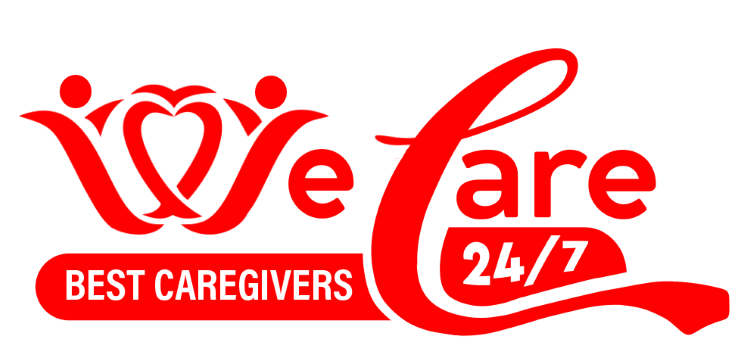Estate Planning for NJ Seniors: Protecting Assets & Loved Ones

Securing Your Future: A New Jersey Guide to Estate Planning for Seniors
As individuals age, planning for the future becomes an increasingly important consideration. For New Jersey seniors and their families, estate planning offers a systematic approach to ensuring your wishes are honored, your assets are protected, and your loved ones are provided for. This comprehensive guide will explore the essential components of estate planning within the context of New Jersey law, offering insights for those considering in-home care options, adult children supporting their parents, and caregivers navigating complex financial landscapes.
Estate planning extends beyond just drafting a will; it encompasses a broader strategy for managing your assets during your lifetime and distributing them after your passing, while also addressing potential healthcare needs and long-term care costs. Taking these steps proactively provides peace of mind and can alleviate significant burdens for your family during difficult times.
Understanding the Core Elements of an NJ Estate Plan
An effective estate plan is a tailored collection of legal documents and strategies designed to meet your specific goals. While each plan is unique, several foundational elements are typically included for New Jersey residents.
The Will: Your Testamentary Voice
A Last Will and Testament is the cornerstone of most estate plans. In New Jersey, a will allows you to dictate how your assets will be distributed upon your death, name guardians for minor children (if applicable), and appoint an executor to manage your estate. Without a valid will, New Jersey’s intestacy laws will determine how your property is divided, which may not align with your preferences.
- Distribution of Assets: Clearly specifies who inherits your property, including real estate, bank accounts, investments, and personal belongings.
- Executor Designation: Names the person or entity responsible for carrying out the terms of your will and navigating the probate process in New Jersey.
- Guardianship for Minors: If you have minor children, a will is the place to designate who will care for them.
Trusts: Versatile Tools for Asset Management
Trusts offer a flexible way to manage and distribute assets, often outside of the probate process. New Jersey recognizes various types of trusts, each serving different purposes.
- Revocable Living Trusts: These trusts can be changed or revoked during your lifetime. They allow assets to pass directly to beneficiaries upon your death, avoiding probate, and provide for asset management if you become incapacitated.
- Irrevocable Trusts: Once established, these trusts generally cannot be modified or revoked. They are frequently used for advanced estate tax planning, asset protection from creditors, or Medicaid planning purposes in New Jersey.
- Special Needs Trusts: For families caring for individuals with disabilities, a special needs trust (also known as a supplemental needs trust) is invaluable. It allows you to provide financial support for a loved one with a disability without jeopardizing their eligibility for essential government benefits like Supplemental Security Income (SSI) or Medicaid. New Jersey law allows for these trusts to fund supplemental needs such as therapies, equipment, or an improved quality of life, without being considered an income or asset resource.
Understanding which type of trust aligns with your objectives requires careful consideration and professional guidance.
Powers of Attorney: Designating Authority
These documents empower someone you trust to make decisions on your behalf if you are unable to do so yourself. They are essential for ensuring continuity in your financial and healthcare affairs.
- Durable Power of Attorney for Finances: Grants a designated agent the authority to manage your financial matters, pay bills, handle investments, and make transactions. This power remains effective even if you become incapacitated.
- Durable Power of Attorney for Healthcare (Medical Power of Attorney): Allows your chosen agent to make medical decisions for you if you cannot communicate your wishes. This document works in conjunction with an Advance Directive.
Advance Directives (Living Will): Your Healthcare Wishes
An Advance Directive, often called a Living Will in New Jersey, outlines your preferences regarding medical treatment, especially end-of-life care. This document guides healthcare providers and your family in making decisions consistent with your values and beliefs, reducing potential family disputes during challenging times.
Navigating Long-Term Care Costs and Medicaid Planning in New Jersey
One of the most significant concerns for New Jersey seniors and their families is the cost of long-term care. Whether it’s assisted living, nursing home care, or extensive in-home care services, these expenses can quickly deplete a lifetime of savings. Medicaid (known as NJ FamilyCare for some programs) is a primary public assistance program that can help cover these costs for eligible individuals, but it has strict income and asset limits.
Medicaid Eligibility and Look-Back Periods
New Jersey’s Medicaid program for long-term care services has specific financial eligibility criteria. To qualify, an individual’s assets and income must fall below certain thresholds. There is also a 5-year look-back period for asset transfers. This means that if assets were transferred for less than fair market value within 60 months (5 years) before applying for Medicaid, a penalty period of ineligibility may be imposed. This provision aims to prevent individuals from giving away assets just to qualify for benefits.
For those considering in-home care services as a way to age in place, understanding Medicaid’s role is particularly relevant. While home care can be less expensive than institutional care, substantial costs can still accumulate. Certain Medicaid programs in New Jersey, such as the Managed Long Term Services and Supports (MLTSS) program, can cover in-home care for eligible seniors, providing a vital resource for families.
Strategies for Asset Protection and Medicaid Planning
Proactive planning is essential for protecting assets while seeking Medicaid eligibility for long-term care. Strategies might include:
- Irrevocable Trusts: As mentioned, assets transferred into an irrevocable trust can be protected from being counted towards Medicaid eligibility after the 5-year look-back period expires.
- Gift Planning: Careful gifting strategies, executed well in advance of a potential Medicaid application, can transfer assets out of your name. This must be done with expert guidance to avoid triggering penalty periods.
- Medicaid Annuities: For married couples, converting countable assets into an immediate annuity for the healthy spouse can be a permissible strategy to protect resources.
- Personal Service Contracts: Establishing a formal agreement for care services provided by a family member, paid for by the senior, can convert countable assets into an income stream, provided the contract meets specific legal requirements.
It is important to emphasize that Medicaid planning is complex and involves state-specific rules. Consulting an elder law attorney specializing in New Jersey Medicaid is highly recommended to navigate these rules correctly and avoid unintended consequences.
Probate in New Jersey: What to Expect
Probate is the legal process by which a deceased person’s will is proved valid in court, and their estate is administered and distributed. In New Jersey, probate generally occurs in the Surrogate’s Court of the county where the deceased resided.
While New Jersey’s probate process is often considered less cumbersome than in some other states, it still involves several steps:
- Filing the Will: The executor presents the will and a death certificate to the Surrogate’s Court.
- Executor Appointment: The court officially appoints the executor named in the will (or an administrator if there is no will).
- Asset Inventory and Valuation: The executor identifies and values all of the deceased’s assets.
- Debt and Tax Payment: Debts, final expenses, and any applicable taxes (including potential New Jersey inheritance tax or estate tax, though the state estate tax was repealed for deaths after January 1, 2018) are paid.
- Distribution: Remaining assets are distributed to beneficiaries according to the will or intestacy laws.
Probate can be time-consuming and involves legal fees. Strategies like establishing a revocable living trust can help avoid or minimize the need for probate, streamlining the transfer of assets to beneficiaries.
Other Important Considerations for NJ Seniors
Digital Assets
In our increasingly digital world, your estate plan should also address digital assets. This includes online accounts, social media profiles, email accounts, and digital photos. New Jersey has adopted the Revised Uniform Fiduciary Access to Digital Assets Act (RUFADAA), which provides a legal framework for fiduciaries (like executors or agents under a power of attorney) to access and manage digital assets, provided the necessary permissions are granted in your estate plan.
Choosing Your Advisors
Building a robust estate plan requires the expertise of various professionals. While this guide provides foundational knowledge, it is not a substitute for personalized legal and financial advice.
- Estate Planning Attorney: An attorney specializing in estate planning or elder law in New Jersey will draft your legal documents, provide advice on asset protection, and explain the intricacies of state and federal laws.
- Financial Advisor: A financial advisor can help you assess your current assets, understand your long-term financial needs, and align your investments with your estate planning goals.
- Accountant/Tax Professional: These professionals can offer guidance on the tax implications of your estate plan, including income, gift, and estate taxes.
When selecting a professional, seek those with experience specific to New Jersey law and a deep understanding of senior-related financial and healthcare issues. Recommendations from trusted sources or professional organizations can be a good starting point.
The Interconnection with Home Care Services
For many New Jersey seniors, the desire to age in place with comfort and dignity leads to exploring in-home care options. Estate planning directly supports this desire by helping to secure the financial resources needed to afford quality care. By strategically managing assets and planning for potential long-term care costs through instruments like Medicaid planning or long-term care insurance, families can ensure that funds are available for personalized assistance with daily activities, medication management, or skilled nursing care within the familiar surroundings of home.
Furthermore, having comprehensive estate documents, such as a Durable Power of Attorney for Healthcare, ensures that if a senior experiences a health crisis requiring home health services, there is a designated individual authorized to make immediate decisions regarding their care, including engaging a home care agency. This seamless transition is beneficial for both the senior and their care team.
Conclusion: Take Action for Your Future
Estate planning is a thoughtful act of self-care and love for your family. For New Jersey seniors, adult children seeking guidance for their parents, and caregivers supporting individuals with disabilities, taking the time to create or update an estate plan offers profound benefits.
It brings clarity regarding your wishes, protects your assets from unforeseen circumstances, and establishes a clear path for your legacy. Do not delay in initiating these important discussions and seeking professional assistance. By planning today, you provide security and peace of mind for tomorrow, ensuring your future and the well-being of those you care about are well-protected.
To learn more about New Jersey elder law resources, consider visiting the New Jersey Department of Human Services, Division of Aging Services. For legal guidance on estate planning specific to New Jersey, resources such as the New Jersey State Bar Association’s ‘Find A Lawyer’ service can connect you with qualified professionals. Additionally, information on Medicaid and long-term care services is available through New Jersey Medicaid.



